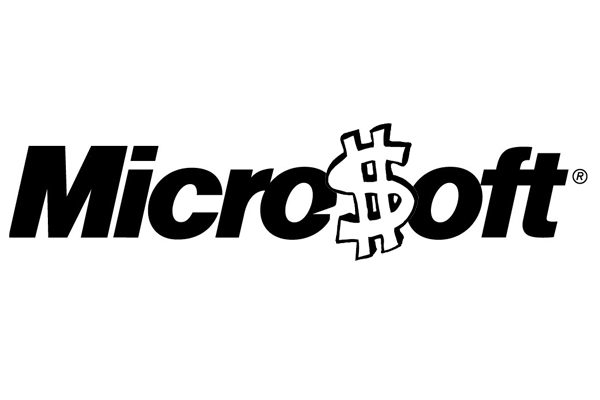Google’s new mobile phone Galaxy Nexus launched on November 17 in U.K but has many problems. Most of the people who bought it complain about it. The most annoying of them is the volume bug. Volume goes up and down auto-magically and this happens almost in every action, when the user watches a video, makes a call or listens to music. You can watch the following video that demonstrates the problem. If you want to buy a good Android phone then I recommend the Samsung Galaxy S II, avoid Galaxy Nexus. Their specifications are very similar and Galaxy S II does not have all that software bugs of Galaxy Nexus.
Microsoft Socl – A new social network
It appears that Microsoft will launch its own social network called Socl, although the name might change (again). A quick pick from the source, Socl looks like other social networks (Facebook and Google+) with a three column interface. It has video parties where you can share a video from YouTube with friend and chat about is. It is basically the same as Google+’s hangouts. Socl is based on HTML5 and there is neither Silverlight nor Flash which is a big plus if you ask me. Socl started as, and still is, a research project but it will most probaply be publicly available for testing purposes. Microsoft is grounded and they know that they might never get close to the number of users that Facebook has.
How users can destroy internet companies
There are many companies that their operations, and most of their profit, are based on the Internet. Some of those Internet companies earn most of their money by advertising products and other companies. Examples of such Internet companies are Facebook and Google. Users have the power to destroy any Internet company they want. Most probably you can not do such thing alone but a large group or movement like Anonymous might can. This article is written because I found it interesting and I don’t support any actions that will intentionally harm a company. I will describe two methods that can hurt advertisers and ad-serving companies and websites, if done massively, advertisement blocking and intentional advertisement clicking.
How many websites exist

We all surf the Internet to find what we want. We read the news, we see sport results, we download software, we learn new things, we watch funny videos, we are informed about new songs and movies and anything else we can think of. In order to do this we visit websites but how many are they? Are we talking about thousands, millions or more? Many people don’t think about it but some of us wonder. A friend of mine recently asked me about that, I didn’t know for sure and I guessed that they could be several millions. I am glad to say now that I was not wrong.
Play with Android on your computer
If you want to check out the Google’s OS Android, without a device that supports it, you can do it. This one is different from the Bluestacks app player. You don’t play just the apps but you see the operating system as a whole. If you are not familiar with Live CDs (such as Ubuntu Live CD) then you should know that it is a bootable CD that runs an operating system from the CD without requiring any installation. This is how you can also try Android. LiveAndroid is a LiveCD for x86 platforms (normal PC) that runs Android. You can download the image of the CD from the LiveAndroid’s website and burn it to a CD. As we said, you don’t need to install anything, it will not affect your files and all you need to do is insert the CD and restart your computer.
Flexible Screens from Samsung
Samsung Electronics said that its goal is to produce mobile phones with flexible screens in 2012. Flexible displays will be added later to tablets and other mobile devices. Samsung is willing to continue its Galaxy S II success which sold 10 million devices in a period of five months. What flexible screens means to consumers? Hopefully less cracked displays and better mobile designs. It might also means higher prices at the beginning but this is expected on any new device. All we can do for now is wait.
Google shows your IP in results
Every time I wanted to view my public IP address I was googling “show my IP” or “what is my ip” and I was visiting, most of the times, the first result to find out. I have done this few thousands times so far but things are about to change. Now, the only thing I have to do is google for what is my ip and Google shows my IP address before the other results. It was about time, after currency conversion and mathematical equations, I was waiting for something like this. It does not save a lot of time, but for a repeating action even little is big.
Another Microsoft Patent Agreement for Android

About a month ago we mentioned in a post that Microsoft will earn $444 millions from Android patent agreements. Microsoft has won another battle in the Android patent war and it now has its tenth licence agreement. The newest agreement is with Compal, a Taiwanese company with about $28 billions annual revenue. Big news for Microsoft which now has agreements with more than 50% of the companies who produce Android devices (about 55%).
JavaFX 2.0 has been released
avaFX is a platform for developing rich client applications and also rich internet applications (RIA). With JavaFX 2.0 you can create JavaFX applications completely with Java code. This was not able with the previous version and it was a main reason why many developers didn’t choose JavaFX for their applications. Now you write the application and then you can deploy it as a desktop application or as a web application. In JavaFX 2.0 you can use FXML, a new XML-based markup language, to define the user interface. Version 2.0 has also a new graphics engine to handle modern GPUs and a new media engine based on the GStreamer multimedia framework.
Microsoft still wants to buy Yahoo!
ilver Lake Partners, a private-equity firm, works with Microsoft in order to bid on Yahoo! Inc. Microsoft wanted to buy Yahoo! in the past and apparently it didn’t give up. If we consider the search market share of Google, Yahoo! and Microsoft, it is obvious why Microsoft wants Yahoo!. Google’s search market share in the U.S is about 65.4%, Yahoo!’s is about 17.2% and Microsoft’s 13.4%. Microsoft is in the third place and has about the 1/5 of Google’s market share. By acquiring Yahoo! Microsoft is automatically moved to the second place with almost the half search market share of number one in the U.S which is huge.